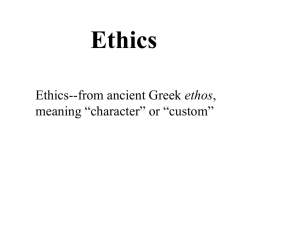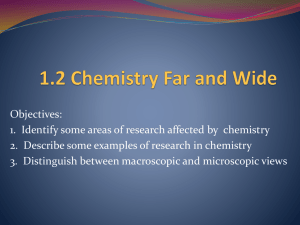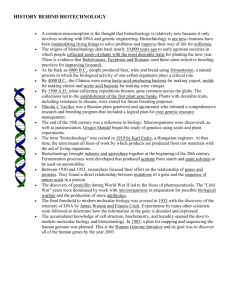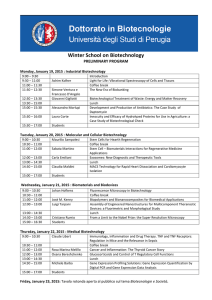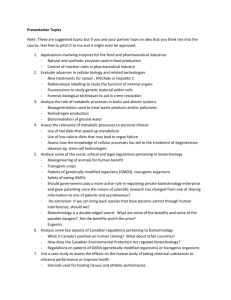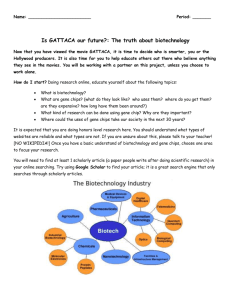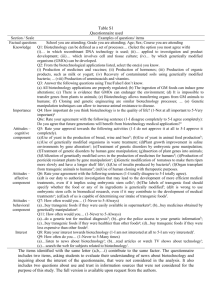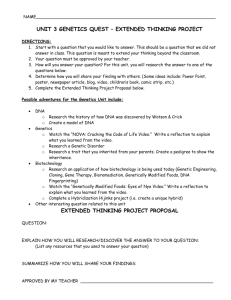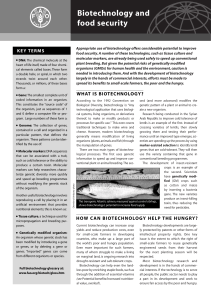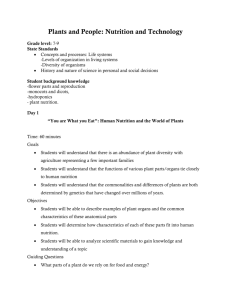WHO Status Paper UNEP/EWWP7/Inf.5
advertisement
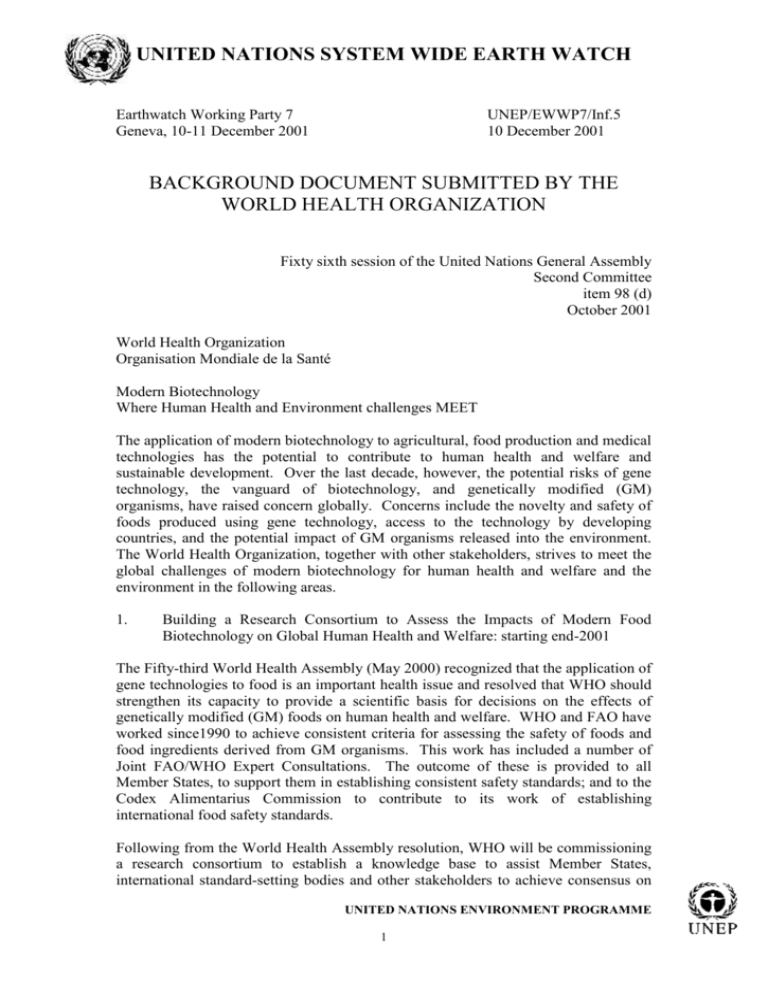
UNITED NATIONS SYSTEM WIDE EARTH WATCH Earthwatch Working Party 7 Geneva, 10-11 December 2001 UNEP/EWWP7/Inf.5 10 December 2001 BACKGROUND DOCUMENT SUBMITTED BY THE WORLD HEALTH ORGANIZATION Fixty sixth session of the United Nations General Assembly Second Committee item 98 (d) October 2001 World Health Organization Organisation Mondiale de la Santé Modern Biotechnology Where Human Health and Environment challenges MEET The application of modern biotechnology to agricultural, food production and medical technologies has the potential to contribute to human health and welfare and sustainable development. Over the last decade, however, the potential risks of gene technology, the vanguard of biotechnology, and genetically modified (GM) organisms, have raised concern globally. Concerns include the novelty and safety of foods produced using gene technology, access to the technology by developing countries, and the potential impact of GM organisms released into the environment. The World Health Organization, together with other stakeholders, strives to meet the global challenges of modern biotechnology for human health and welfare and the environment in the following areas. 1. Building a Research Consortium to Assess the Impacts of Modern Food Biotechnology on Global Human Health and Welfare: starting end-2001 The Fifty-third World Health Assembly (May 2000) recognized that the application of gene technologies to food is an important health issue and resolved that WHO should strengthen its capacity to provide a scientific basis for decisions on the effects of genetically modified (GM) foods on human health and welfare. WHO and FAO have worked since1990 to achieve consistent criteria for assessing the safety of foods and food ingredients derived from GM organisms. This work has included a number of Joint FAO/WHO Expert Consultations. The outcome of these is provided to all Member States, to support them in establishing consistent safety standards; and to the Codex Alimentarius Commission to contribute to its work of establishing international food safety standards. Following from the World Health Assembly resolution, WHO will be commissioning a research consortium to establish a knowledge base to assist Member States, international standard-setting bodies and other stakeholders to achieve consensus on UNITED NATIONS ENVIRONMENT PROGRAMME 1 UNITED NATIONS SYSTEM WIDE EARTH WATCH appropriate modes of application and risk assessment of foods produced using gene technology. The research consortium will identify and recapitulate current knowledge on the potential risks and benefits of modern biotechnology, considering both direct and indirect effects. Areas covered will include current and future application of gene technology to food production, issues of food safety, access and technology transfer, socio-economic costs/benefits, civil society implications and, to a certain extent, environmental impacts. 2. Reevaluating Biosafety and Transport It is WHO’s responsibility to provide an international scientific forum in which the issues of risk analysis, handling, packaging, labelling and transport of biological substances are considered in the context of international health and environmental safety. In order to accomplish these goals, WHO regularly consults with subjectmatter experts and various national and international organizations dealing with biological and environmental safety. These efforts are designed to promote safe, practical and economic practices for the identification, handling and transport of biological substances, which include diagnostic specimens, etiological agents, human organs and tissues and genetically modified microorganisms. The WHO Biological Safety programme works to establish consensus recommendations for the handling and shipment of biological substances based on universal precautions and best practices. These model procedures and practices are presented for consideration to the UN Committee of Experts on the Transport of Dangerous Goods. Published recommendations of that UN body are widely consulted for the establishment of national regulatory practices as well as handling, packaging and shipment requirements by international cargo and transport organizations. For further information please contact: 1. Dr Jorgen Schlundt, Coordinator, Food Safety Programme, Department of Protection of the Human Environment, Sustainable Development and Healthy Environments, WHO e-mail: schlundtj@who.int Website: http://www.who.int/fsf 2. Dr Diego Buriot, Director, WHO Office in Lyon, Department of Communicable Disease Surveillance and Response, WHO e-mail: buriotd@lyon.who.int Website: http://www.who.int/emc/lyon UNITED NATIONS ENVIRONMENT PROGRAMME 2
